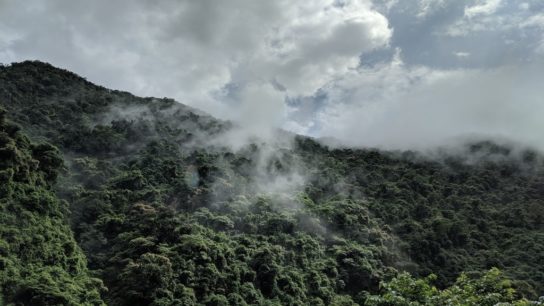Chimpanzees are our closest primate cousins yet their numbers are diminishing every day due to habitat loss related to deforestation and climate change. To help increase more awareness and to mark World Chimpanzee Day, which falls on July 14, here are 10 interesting facts about chimps you might not have known.
—
1. We share 95-98% of the same DNA with chimpanzees
Biologically, we are much more closely related to chimpanzees and bonobos than we do to gorillas. Our two species are descended from a single ancestor species that lived six or seven million years ago.
2. Wild chimpanzees can only be found in Africa
They are located in about 21 African countries, with a majority of numbers found in central Africa. The largest concentration of chimpanzees are mostly in rainforest areas as they need a water supply and access to fruits.

3. Chimpanzees Have the Ability to Learn Human Languages such as Sign Language
In captivity, chimpanzees have been able to pick up American Sign Language (ASL) to communicate with caretakers. A chimpanzee named Washoe, was known to be the first non-human to learn to communicate via ASL and was able to do more than 350 signs. Washoe also managed to pass on some signs to her adopted son later on.
4. Chimpanzees are one of the few animals that are known to use tools
Much like humans, chimpanzees utilise self-made tools in order to feed and protect themselves, and have found ingenious ways to do so. From using small branches to dig out termites from their mounds, to smashing rocks to crack open nuts to searching the right length of twig to scratch themselves, chimpanzees have real creativity in turning tools to their benefit.
5. Chimpanzees are omnivorous
They are happy to eat most foods but they tend to eat more fruit than any other food groups. A chimpanzee’s diet consists of everything from seeds, leaves, insects, honey and even roots. Though they have been recorded to hunt other wildlife like monkeys or small antelope for meat. For chimpanzees, feeding is mostly an individual activity but known to work in a team occasionally.
You might also like: 10 Major Companies Responsible for Deforestation
6. Chimpanzees have complex family and social structures
They live in fission-fusion societies – meaning the size and composition changes over time – that breaks off in smaller, often interchangeable groups. Extended family groups can grow as large as 20-120 individuals and can have strict hierarchies, with just one dominant alpha male at the head.
7. Female chimpanzees only give birth once every five years
Most pregnancies typically carry only one child. Infant chimpanzees will cling on to its mother’s furs and ride on her back until the ages three to five, resulting in a close familial bond even after reaching maturity.

8. Chimpanzees can live up to their 80s
The oldest recorded chimpanzee was Little Mamma, a captive female who was between 76 to 82 years old when she died in 2017. Though the average life expectancy for captive chimps are around 38 years old. Chimpanzee lifespan in the wild is a bit more difficult to record but one research has found chimps living at Ngogo in Uganda’s Kibale National Park to have an average life expectancy of 33 years.
9. They can walk on two legs
Chimps get around by a lot of climbing and swinging from tree to tree. Not unlike gorillas, chimpanzees usually walk on all fours, otherwise known as knuckle-walking, but have been recorded to walk on two feet on the rare occasion.
10. Chimpanzee are currently an endangered species
The International Union for the Conservation of Nature has declared the chimpanzee an endangered species. Due to increasing human activities such as logging, mining, oil extraction and highway projects, the natural habitats of chimpanzees have significantly degraded and impacted.
Featured image by EO photographer Josh Robertson
This story is funded by readers like you
Our non-profit newsroom provides climate coverage free of charge and advertising. Your one-off or monthly donations play a crucial role in supporting our operations, expanding our reach, and maintaining our editorial independence.
About EO | Mission Statement | Impact & Reach | Write for us


















